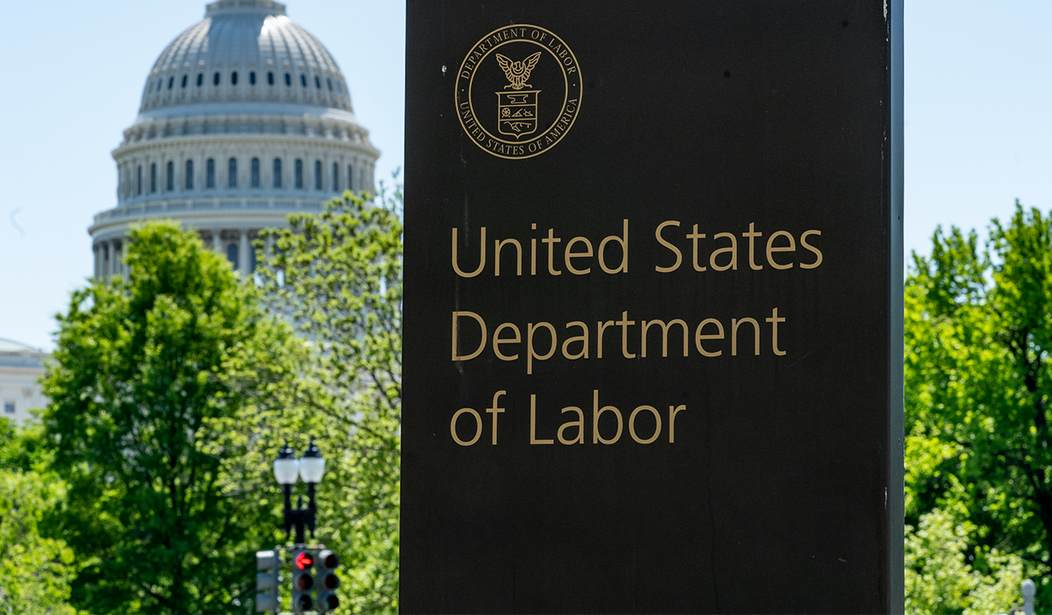All through the pandemic, we knew that the amount of fraud being encountered in the pandemic relief programs was bad. Really bad. That was particularly true of the claims being filed against the enhanced and extended unemployment insurance (UI) benefits being offered by the government. Back in February, the Government Accountability Office (GAO) estimated that it could be as high as 60 billion dollars. After additional research, it turns out that they were off by a bit. Or much more than “a bit” since they are now saying that the amount of UI fraud is somewhere between 100 and 135 billion. So it’s almost certainly at least double the original estimate. And the GAO is warning us that those figures will go higher because they’re still not done counting yet. (NY Post)
The amount of fraudulent unemployment payments doled out during the pandemic was likely between $100 billion and $135 billion, accounting for up to 15% of the total benefits issued between April 2020 through May 2023, according to a government watchdog.
The study doubles the original Government Accountability Office’s estimate provided to the House Ways and Means Committee in February.
And the actual level of fraud could be even higher, despite more than a billion dollars allocated to states by the Biden administration for unemployment fraud prevention, detection, investigation and recovery.
The new GAO report literally states that the full extent of the UI fraud “will likely never be known with certainty.” I suppose that’s a refreshing, if depressing bit of honesty coming out of Washington. So much money was being stolen so quickly that we’re never going to be able to tally it all up, to say nothing of prosecuting all of the people who cashed in. For Pete’s sake, we could have paid for the entire Ukrainian war effort to date with that much cash.
Speaking of prosecuting people, how’s that going? Not very well, it seems. The same GAO report says that the states have recovered $6.8 billion in “overpayments” (some of which may have been honest mistakes) and $1.2 billion in fraudulent payments. That’s less than one percent of the total amount that has thus far been identified as having been stolen. And they’ve been working on this for two years.
There is already a bill on the floor of Congress to address this situation and aggressively go after the fraudsters. H.R. 1163 is called the Protecting Taxpayers and Victims of Unemployment Fraud Act. But for some reason, they’ve been having trouble attracting enough support from Democrats to ram it through. We can detect a clue as to why based on the response from the White House. The Biden administration’s Department of Labor “expressed concerns” with the study’s methodology and described the resultant estimate this week as being “likely overstated.”
Because of course they would. Washington was handing out unimaginable amounts of money with almost no new oversights put in place to monitor whether or not the system was being abused. Now they don’t want any official record of just how badly they screwed up and they don’t want to draw attention to it with any new legislation focused on trying to claw the money back.
It’s also an even more unpleasant reminder that none of these problems should have arisen in the first place. We wouldn’t have had to shell out that kind of UI cash if we hadn’t shut the country down and put so many people out of their jobs. (I was one of the dummies who never collected a dime of it, though my wife did for a few months.) And we’re realizing more and more these days that shutting the country down did pretty much nothing to “stop the spread” of the virus, the same way that the masks and “social distancing” were fool’s errands. And yet we still have people in positions of power who are ready to go back and do it all over again every time a new strain is detected or infection rates tick back up a bit. We’ve clearly learned nothing, and as far as I’m concerned we probably deserve everything we have coming if we can’t manage to adjust our approach to be in line with actual science rather than Trusting The Science.








Join the conversation as a VIP Member